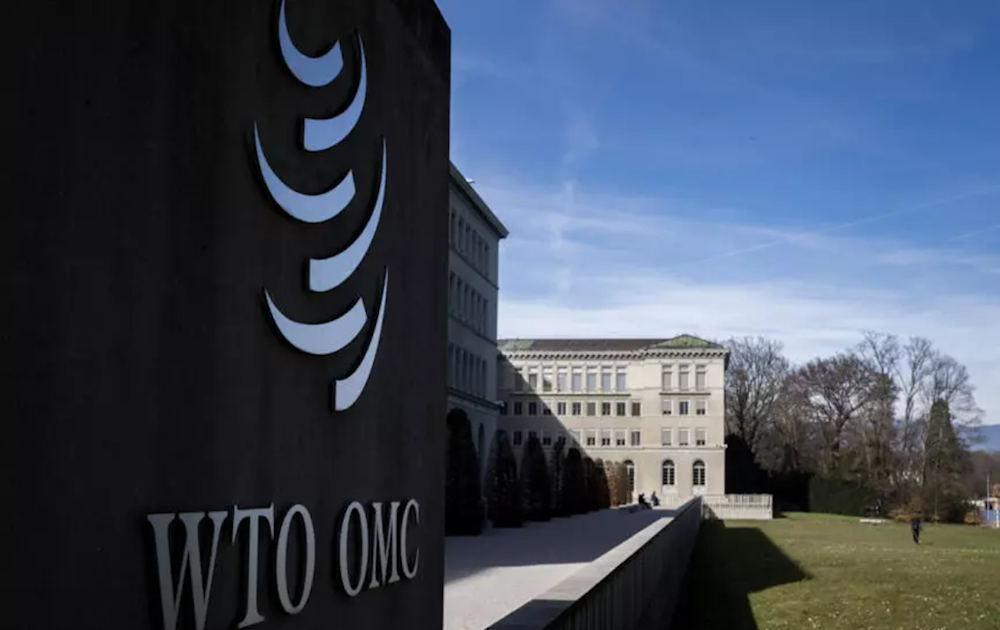Globalization is evolving, not ending, expert explains
Warwick Powell argues that multipolar globalization requires security institutions that promote shared, universal security—not zero-sum rivalries.
-
 The World Trade Organization is seen next to Lake Geneva. (Undated, AFP)
The World Trade Organization is seen next to Lake Geneva. (Undated, AFP)
As tariff tensions flare once again, policymakers and commentators have revived the claim that globalization is on its last legs. According to Warwick Powell, the current geopolitical shake-up signals not the end, but the transformation of globalization into a new, multipolar phase.
Powell writes in Global Times that while the dominance of the transatlantic economies has long waned, some analysts have seized on trade wars and protectionist policies as evidence that globalization is collapsing. However, economic trends tell a different story.
Rather, we are currently at the conclusion of "globalization with Western characteristics" and the start of "globalization with multipolar characteristics."
It is a new chapter in globalization, with the US and Western powers decentered. Yet, it does not represent a retreat into autarky, even if some argue that the current wave of tariffs imposed by Washington signals a temporary withdrawal from deeper global integration.
Globalization is entering a new, multipolar phase defined by expanded trade, diversified capital flows, and the rise of regional institutions providing economic and security governance—regardless of US involvement. The ongoing US-led tariff war is ironically accelerating this shift. At the heart of this transformation is increased international cooperation.
China plays a central role in this new order as a global manufacturing powerhouse and key trading partner for over 150 countries. Its economic stability and institutional influence help anchor a disrupted global system. Further market openness from China could enhance this emerging model.
Strategic initiatives are needed to accelerate this multipolar globalization.
Governments should uphold their commitment to the World Trade Organization, even as they adapt regional and bilateral trade agreements. While these institutions need modernization, they remain essential to the global trading system, Powell contends.
To strengthen commerce, countries must prioritize cooperation—aligning supply chains locally, ensuring trade is mutually beneficial, and supporting development goals. In the face of tariff-related disruptions and declining US market reliability, coordinated fiscal measures can help stabilize global demand.
Trade can be strengthened by improving transnational digital standards for supply chain data, enabling faster customs processing and smoother, data-driven payments for buyers and financial institutions.
At the same time, expanding capital flows is essential to support development in the Global South. Traditional institutions like the World Bank and IMF have fallen short in addressing underdevelopment and need reform to better reflect southern voices. New, national currency-based financial institutions—such as the BRICS-led New Development Bank and the Asian Development Bank—should play a greater role in mobilizing resources and technology to address long-standing global inequalities.
Powell argues that multipolar globalization requires security institutions that promote shared, universal security—not zero-sum rivalries. Revitalizing the United Nations in line with its founding charter, along with drawing on principles like China’s peaceful coexistence and the Bandung Conference’s non-alignment ideals, can support a new model of global governance.
While the era of "globalization with Western characteristics" may be ending, greater global coordination and cooperation can ensure that the emerging multipolar model delivers more inclusive benefits worldwide.

 3 Min Read
3 Min Read










